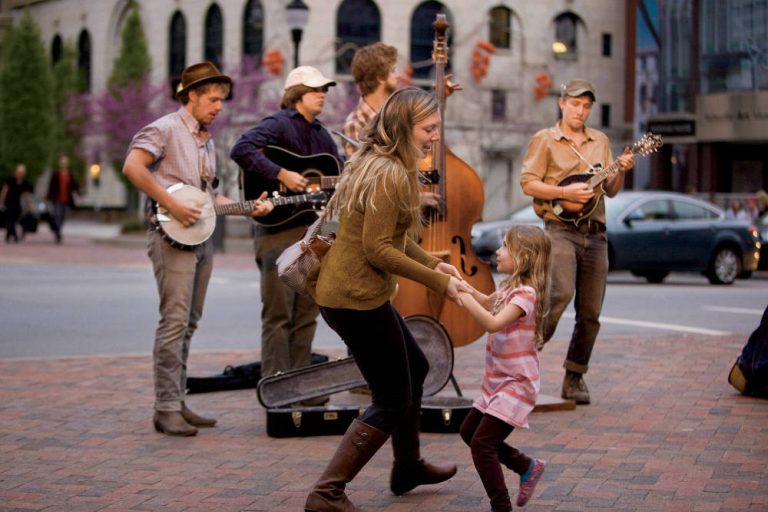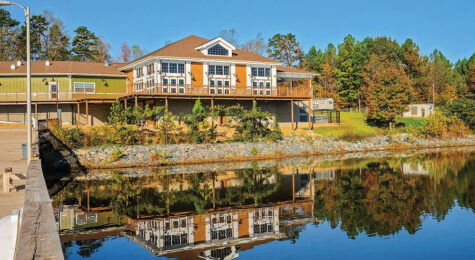Moving to North Carolina? Here Are the Basics
From climate to cost of living to craft beer, here's everything you need to know before relocating to North Carolina.

It’s nearly impossible to visit North Carolina without asking yourself, “Wait, why don’t I live here?”
The more of the state you see, the more likely you are to run out of excuses. North Carolina’s beautiful Atlantic Coast, Appalachian Mountains and Piedmont Region offer a variety of culture, outdoor recreation and business and career opportunities that make it a wonderful place to live. Whether you’re still daydreaming about moving to North Carolina, packing up your U-Haul truck, or somewhere in between, here’s a rundown of everything you need to know before you make the move to the Tar Heel State.
In This Article
North Carolina Climate
North Carolina residents experience all four seasons with moderate temperatures. Each of the three regions – coastal, mountain and Piedmont – may vary within four to eight degrees with an annual average low of 46 degrees and a high of 74 degrees. Annual rainfall is between 37 inches and 58 inches. The mountains receive an average of 13 inches of snow per year, and coastal and Piedmont are far below that with just one inch to four inches per year.
North Carolina Cities
Raleigh, Greensboro and Charlotte have vibrant downtowns with restaurants, art galleries and museums. Suburban communities are just minutes away from city amenities.
Wilmington is on the coast and offers access to beautiful beaches and quaint towns such as Wrightsville Beach and Sunset Beach.
In the mountains, Asheville offers an art community with breweries, restaurants and a strong tourism industry. Pisgah National Forest and Great Smoky Mountains National Park are a short drive from Asheville.
North Carolina Top Employers
North Carolina’s business and manufacturing companies are sprinkled throughout the state. Companies like IBM, Smithfield Foods, GlaxoSmithKline, Lowe’s Companies, Inc. and SAS Institute are providing jobs in industrial machinery and equipment, food products, chemicals and allied products, textile mill products and transportation equipment.
Charlotte’s banking and finance industry is led by Wells Fargo and Bank of America. Small business ownership is supported by several private and public organizations in Charlotte.
Chapel Hill, Durham and Raleigh form Research Triangle Park, a hub for medical, technology and science companies.
North Carolina Things To Do
Outdoor enthusiasts can enjoy North Carolina’s state parks, lakes and rivers. Many offer hiking, biking, canoeing and camping. US National Whitewater Center in Charlotte, with its kayaking, whitewater rafting and rock climbing is a favorite destination for many North Carolinians. Need some beach time? Visit the Outer Banks for a tour of the lighthouses on North Carolina’s beaches.
Art connoisseurs take in local and professional theater, dance and music available throughout the cities in North Carolina. Touring companies of most major productions, like Hamilton and Lés Miserables, perform in the larger city venues.
Join a wine-tasting event at one of the many vineyards in the Piedmont and mountain regions. Check out craft breweries (and see why Asheville nabbed a spot on our Best Beer Cities list) and cideries highlighting specialty beers, entertainment and food truck events.
Look for festivals and fairs, like the Carolina Balloon Festival in Statesville and the North Carolina Apple Festival in Hendersonville, almost every weekend featuring music, food, art and other activities.
North Carolina Cost of Living
Cost of living varies depending on where you live in the state and what size home you want to buy or rent. The median cost to buy a house, across state and types of properties, is $175,000. Average two-bedroom apartment rentals are $933 per month.
Use this tool to see how a salary in North Carolina compares to another city.
North Carolina Transportation Options
Routes 77, 85, 95 and 40 are part of the interstate system in North Carolina. NC By Train and Amtrak operate daily passenger trains running from Raleigh to Charlotte, with stops in seven cities and towns along the way.
The NCDOT ferries transport about 850,000 vehicles and two million passengers a year, making it the second largest state-run ferry system in the U.S.
North Carolina Schools
North Carolina’s state school system includes 16 colleges and universities with campuses in coastal, mountain and Piedmont areas. Private schools such as Duke University, Wake Forest University, Elon University, Davidson College and Queens University of Charlotte are located within the state. Accounting, finance, nursing, motorsports and engineering majors are offered at campuses throughout the state. Internships and cooperative opportunities are available in the larger cities like Charlotte, Raleigh and Greensboro.
The community college system has 58 campuses with an extensive offering of associate degrees and certificate programs in majors such as culinary arts, occupational therapy, fine arts and several other areas.


